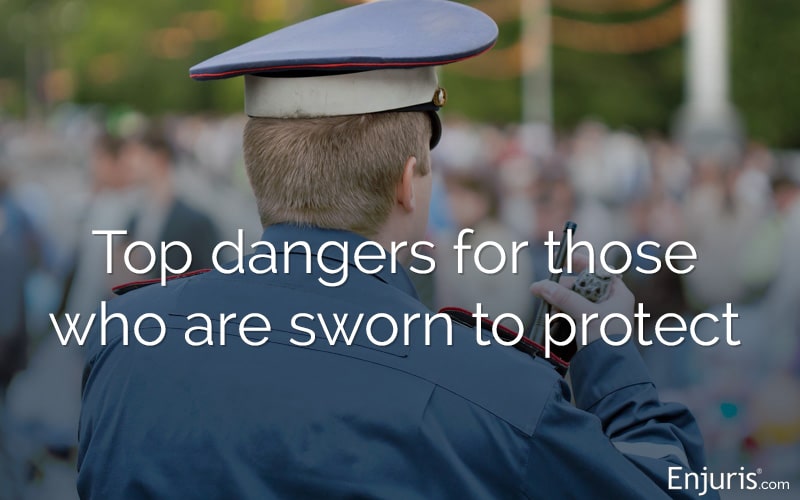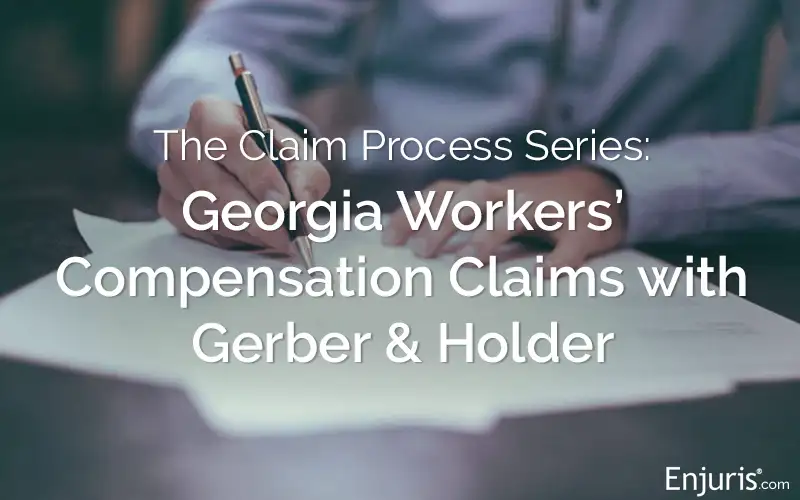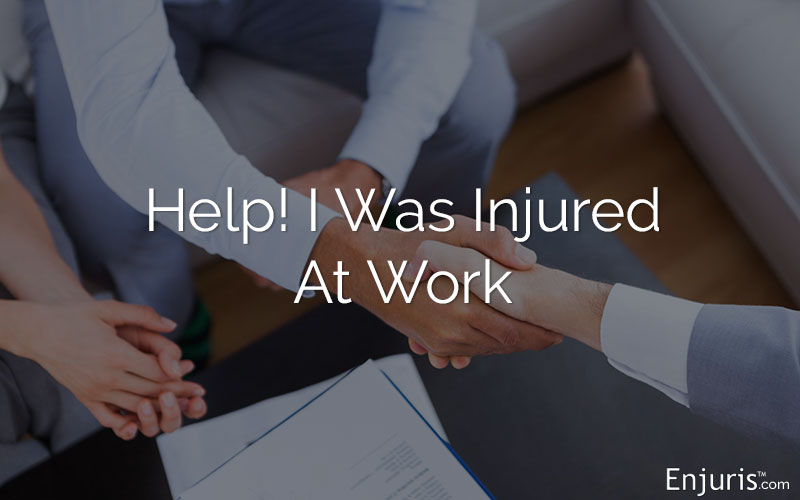
When a person chooses a career as a police officer or first responder, the only certainty is that each day — each call — is going to be unpredictable. There’s a saying that there’s no such thing as a routine traffic stop, and that is true.
Take, for instance, the recent story of an Atlanta police officer who was documenting a “typical” car accident on I-75 in October 2021. As he was working the scene, his body cam recorded the shocking moment when the officer, himself, was struck by a vehicle that crossed into the shoulder where he was standing.
Police later determined that the driver was traveling too fast and too close to the shoulder on a wet roadway at the time the accident happened. Officer Steven Randerson is expected to recover, although he suffered serious injuries.
Georgia Move Over Law
There are 9 states with Move Over laws that require a driver to move to a farther lane when passing towing/recovery, service patrol, and emergency responder vehicles. These states include Georgia, Indiana, Iowa, Kansas, Kentucky, Michigan, Tennessee, Utah, and Wisconsin.
Several other states have Move Over laws that include certain other types of emergency response vehicles, like police, fire and rescue, and EMS. (You can usually distinguish emergency response vehicles as having red, white, or blue flashing lights and service vehicles having amber lights).
All but 7 states have some version of a Move Over law that requires a driver to change lanes and/or slow down when approaching an emergency vehicle stopped or parked on the road.
Responsibilities of a road user approaching an incident
- Maintain a reasonable speed under the conditions, which include actual and potential hazards.
- Obey directions of any authorized official directing traffic and applicable traffic control devices.
- The driver should reduce speed and vacate a lane that is wholly or partially blocked
- If the driver violates these rules and it results in injury or death, the violator will lose their driver’s license for 1-5 years and could be sentenced to up to 1 year in jail. (source)
Top injury dangers to police and first responders
When an officer is killed in the line of duty, it usually makes headlines. Often, the death is due to a dramatic accident, shooting, or being involved in a road accident like Officer Steven Randerson was (though he luckily survived).
But there’s a new threat facing police officers.
As of October 2021, at least 58 Georgia police officers and other law enforcement personnel died from COVID-19, making it the leading cause of death in that profession since 2020.
Nearly half of Georgia residents are fully vaccinated against COVID-19, but the proportion is lower among police officers.
The Atlanta Journal-Constitution reported that, in addition to the 58 officers who died from COVID-19 since 2020, there are 11 police officers who died in vehicle-related accidents, 2 who died from gunshot wounds, and 1 who was stabbed to death.
There were 108 police officer fatalities in 2018.
- This is 13.7 per 100,0000 full-time equivalent officers, in contrast with the rate of 3.5 per 100,000 for all occupations.
- The primary causes of death were traffic accidents and violence.
(source)
Types of hazards police officers face at work
There’s no comprehensive list of hazards that a police officer might encounter. These are a few of the most likely ways a police officer might become injured while on duty (in no particular order):
- Violence. A police officer could become a victim if they are apprehending or handling an aggressive suspect or individual.
- Vehicle accidents. This can include a variety of hazards. Certainly, a police car is a motor vehicle that could become involved in an accident just like any other car or truck. However, officers are at higher risk because they often drive at high speeds to chase suspects or get to an emergency scene quickly. There’s also the possibility of an officer being injured by a vehicle while on foot (like what happened to Officer Randerson).
- Exposure to illness. This is not limited to COVID-19. Officers enter homes, assist at accident scenes, and respond to emergencies. They are in close contact with the public and can catch airborne illnesses or even bloodborne pathogens if they are not properly protected.
- Exposure to environmental toxins or chemicals. Responding to a scene can bring an officer into contact with chemicals or substances that might result in illness. Such injuries can happen if officers are needed to assist with evacuating people or managing an event like a chemical spill or explosion, or responding to a fire or some other hazardous substance.
- Overexertion, overheating or physical injuries. These types of injuries happen from wearing heavy armor like bulletproof vests, or even needing to squat or crouch for lengthy periods of time. This is a very physically demanding profession that has no mercy for weather conditions or other factors, and it can lead to physical injuries even when there’s not a specific accident or incident.
Common injuries police officers experience
The injuries an officer experiences on the job depend on the nature of the accident or how the injury happened. If they’re in a car accident, for instance, they could suffer the same types of injuries any other person would — traumatic brain injuries, spinal cord injuries, broken bones, cuts and lacerations.
However, they can also develop conditions like heart disease, high blood pressure, and mental health symptoms like post-traumatic stress disorder (PTSD) as a result of the conditions they manage at work.
Workers’ compensation benefits for police officers
Most employers in the U.S. are required to provide workers’ compensation benefits for their employees, and that also applies to police departments.
Workers’ compensation benefits are granted to a person who is injured while performing duties related to their job. It could include anything from motor vehicle accidents to slip-and-fall injuries or exposure to chemicals.
These benefits include medical treatment costs, psychological counseling, rehabilitation, and a percentage of lost wages during the recovery period. They also include death benefits to survivors.
The Fireman’s Rule (which also applies to police officers)
If an employee’s injuries are caused by a third-party’s negligence (in other words, by someone other than their own employer), they might be able to file a personal injury lawsuit for any remaining damages or costs not covered by workers’ compensation.
However, the Fireman’s Rule precludes this in certain situations. This doctrine limits public safety officials from recovering personal injury damages from a third party if the injury is related to the negligence that’s part of their job to handle.
In other words, if the police officer suffers a burn injury while responding to a car fire that was negligently caused because the driver dropped a lit cigarette under the hood of his vehicle, the police officer could not sue the driver for damages. Even though the driver was negligent in dropping a cigarette into a flammable area, making a “rescue” from a car fire is part of the police officer’s job and they cannot sue for that reason. The exception is if the negligent party’s acts that caused the injury were willful or intentional.
This doctrine has been upheld by the Georgia Court of Appeals.
Georgia state death benefits
Certain types of employees in Georgia are eligible for additional death or permanent disability benefits. These include:
- Police officers
- Firefighters
- Prison guards
- Publicly employed emergency medical technicians
- Emergency management rescue specialists
- Members of the Georgia National Guard when called into active state service for law enforcement purposes
The benefit is $100,000 in equal installments of $1,666.66 per month for 5 years, or in a one-time payment reduced to the present value of $73,390.39.
Obtaining financial recovery after a Georgia police officer is injured
If you’re an officer or first responder and you were injured in the line of duty, it’s important to know where to turn to obtain compensation.
First, tend to your medical needs. Regardless of the nature of your injuries or how the accident happened, you should get a medical examination. If you were in a collision, you should see a doctor even if you don’t think you were injured. Symptoms of some injuries can take days or weeks to appear, and if you don’t have a medical exam right away, it could be difficult to establish that the injuries were caused by the accident.
Next, inform your chief, manager or supervisor that you’ve been injured. This will be important for obtaining workers’ compensation benefits. In Georgia, you’re required to notify your employer of the injury within 30 days of the date you were injured, become aware of your injury, or receive a diagnosis for a work-related injury or illness.
You have 1 year to file a workers’ compensation claim.
But don’t wait that long if you can avoid it. One of the advantages of the workers’ compensation system is that you can begin receiving benefits as soon as your claim is processed. The sooner your claim is filed, the sooner you can begin to be compensated for your injuries. The longer you wait, the more skeptical the insurance company will be and the more likely your claim will be disputed or denied.
Should you contact a Georgia workers’ compensation lawyer?
If you received treatment for your injuries, have recovered, and workers’ compensation has covered the full costs (past and future), then you likely don’t need a lawyer.
But if workers’ compensation denies your claim either wholly or partially, or if you believe that a third party’s negligence caused your injury, then you should contact a Georgia workers’ compensation lawyer.



 Natalie Elkins represents injured workers across the state of Georgia in her role as an attorney with Gerber & Holder, a law firm located in Atlanta, Athens, and Columbus, that specializes in workers’ compensation law. Natalie began her law career representing insurance companies and employers in an insurance defense firm, which gave her valuable insight into how the system works and how best to advocate for her workers’ compensation clients. View her
Natalie Elkins represents injured workers across the state of Georgia in her role as an attorney with Gerber & Holder, a law firm located in Atlanta, Athens, and Columbus, that specializes in workers’ compensation law. Natalie began her law career representing insurance companies and employers in an insurance defense firm, which gave her valuable insight into how the system works and how best to advocate for her workers’ compensation clients. View her 